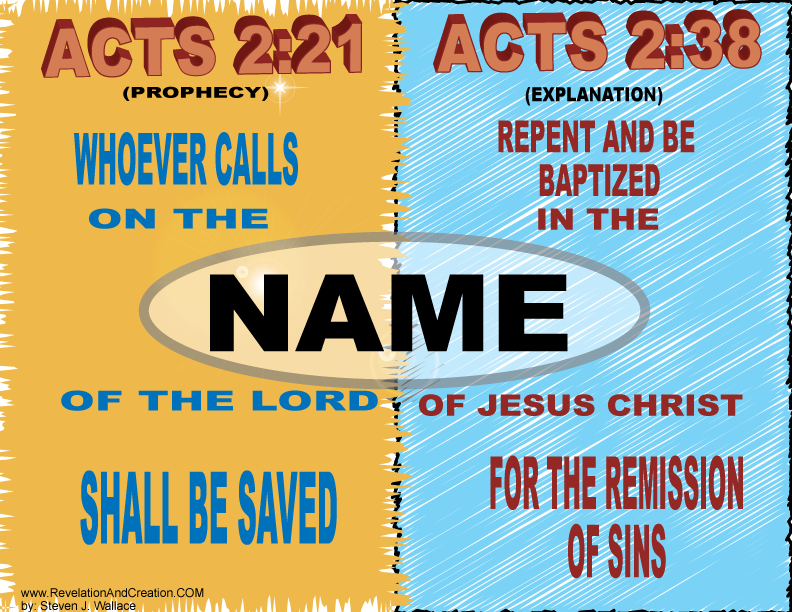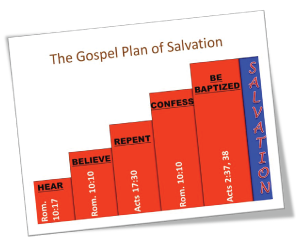Necessary Implication
A Study of Bible Authority With Emphasis Given To Implicit Authority.
| Lesson | Author | Date | File |
|---|---|---|---|
What Is A Neccessary Implication In Matters of Religion? |
Wallace, Steven | 2019.10.06 | mp3 |
| Vital Uses of Necessary Implications (1) | Wallace, Steven | 2019.10.13 | mp3 |
| Vital Uses of Necessary Implications (2) | Wallace, Steven | 2019.10.13 | mp3 |
| Vital Uses of Necessary Implications (3) | Wallace, Steven | 2019.11.03 | mp3 |
| Implications of the Ascension | Wallace, Steven | 2019.11.10 | mp3 |
| Implications about Deity | Wallace, Steven | 2019.12.08 | mp3 |
| Implications about Inspiration | Wallace, Steven | 2020.01.05 | mp3 |
| Implications about the Canon of Scripture | Wallace, Steven | 2020.02.09 | mp3 |
| Implications about Loving God With All the Mind | Wallace, Steven | 2020.02.16 | mp3 |
| TBD | Wallace, Steven | ||
| TBD | Wallace, Steven | ||
| TBD | Wallace, Steven | ||
| Revelation And Creation PowerPoint and Audio Material | |||
Necessary Implication
SERMON OUTLINE, LESSON 1 (PDF)
Introduction:
-
When we talk about having authority to act, we understand that God must grant authority. This is what was understood by the people in the first century and was agreed by Jesus (Matt. 21:23). Jesus didn’t respond, “What are you talking about?” He recognized the need for authority and defended His own (Matt. 28:18; Jn. 5:26, 27).
-
We need authority from God to act with approval from God. In showing how we have authority to speak and act; we frequently relate proven truths which permit things to be done. Using the example of Noah, we can see how authority is established:
-
A statement of fact. Noah could preach by faith that a global flood is coming because of God’s statement (Gen. 6:17).
-
A direct commandment. By faith Noah could build an ark of gopherwood with rooms, three levels, a door because of the direct or explicit commandment (Gen. 6:14-16; Heb. 11:7).
-
An approved example. Noah lived a life that was different from the course of the world. But it wasn’t being different that made him approved before God. It was that he lived a life exemplifying righteousness (Gen. 6:22; 7:1, “I have seen”). Where examples of corrupt living were modeled everywhere, Noah provided an example of how to find grace with God. Like Jesus, “For I have given you an example, that you should do as I have done to you” (Jn. 13:15).
-
A necessary implication. What? Do you mean God expects me to reason (Isa. 1:18)? When we reason from the facts given to us from God, inescapable conclusions will surface. Logic and reason are not enemies to faith, self-will, sensitive feelings, and pride are enemies. Paul said in Acts 26:25, “…’I am not mad, most noble Festus, but speak the words of truth and reason.’” Because of what we gather from Noah’s life, we necessarily conclude that Noah’s lived a life faithfully. He found grace in the eyes of the Lord (6:8). Noah would have necessarily inferred from God’s words that time, tools, and training were in order to fulfill the command to build a seaworthy vessel of gopherwood! He also made a necessary inference in Genesis 8:11, from the evidence collected, ”Noah knew the waters had receded from the earth.” How? By the dove!
-
Let’s specifically look at necessary implications in matters of authority. If Noah could reason well from a bird, how much more should we from God’s completed revelation?
Discussion:
-
WHAT IS A NECESSARY IMPLICATION?
-
Some don’t like this aspect of ascertaining Bible authority and assert that it is a faulty method based on human wisdom. The reason some don’t like it is because it ties their hands from doing what they want to do. It limits people from being conformed to denominational and digressive practices.
-
“Implication” – “The conclusion that can be drawn from something although it is not explicitly stated.”
-
Notice that it is a “conclusion.” It is a conclusion that is drawn from something. It is a conclusion that is not explicitly stated. An implication is therefore implicitly taught rather than explicitly explained.
-
It is also something that requires more thought; it drives us to conclusions.
-
“Necessary” - a legal definition from US Legal, Inc.
-
God created us to be thinking individuals. The Bible is not merely a book of commands, but God challenges us to think and conclude various things to be true/false or good/evil (cf. Heb. 5:12-14). I suggest that it is this form of authority that builds babes into skilled reasoners.
-
So the Bible is a book of explicit teaching in commands and statements as well as implicit teaching with necessary inferences we must understand, conclusions that are insinuated.
-
“Necessary” – This adjective modifies implication. When something is necessary, it is forced, required, compulsory, imperative, essential, indispensable. A necessary conclusion, it is not a possible conclusion, but an irresistible fact. Frost forms when temperatures are below freezing.
-
We should steer clear of preaching unnecessary implications. I’ve heard preachers assert implications that are not necessarily necessary! Unnecessary implications are not authority-based, but presumptuous human opinion.
-
Assuming that because God is love would somehow conclude that God cannot be severe against sin is reaching a false inference.
-
Asserting that grace requires no work of faith is a false conclusion that doesn’t consider all the data revealed on the subject.
-
The disciples made an unnecessary implication in John 21:21-23. We must uphold what is forced and stray away from what is imagined. The reason false implications are made is because people do not consider all that is given on the subject. That enemy one to NI (cf. Psa. 119:160).
-
I like what Ronny Hinds penned in an article on this subject, “Implications require us to consider the facts and understand the necessary conclusions/implications those facts require. The two words of major importance in that last sentence are ‘require’ and ‘necessary.’ I am not talking about any inference or thought we might generally or casually infer, but what God has specifically implied. There is a vast difference between those two ideas. God's implications are bound upon us because God has placed them in His Word. We are not, I repeat, we are not dealing with human wisdom/reasoning/ideas, but with God's implications.”
-
AN EXPLICIT STATEMENT OR COMMAND CAN NECESSARILY IMPLY SOMETHING WE MUST INFER
-
Genesis 6:14. Gathering all the information God gave to Noah, would force Noah to necessarily conclude that the material of the ark must only be gopherwood. Necessary inference brings us a clear and yet rigid understanding that gopherwood excludes all other kinds of wood. God does not have to explicitly prohibit the other wood. He need only to specify the one to use.
-
The statement that the Levites shall perform the work of the tabernacle of meeting (Num. 18:23) necessarily implies that only the Levites, and no other tribe shall do this work. God doesn’t have to explicitly exclude all other tribes. They are implicitly excluded! David, Uzza, and Uzziah all learned this (1 Chron. 13:9, 10; 15:2, 13, 14; 2 Chron. 26:18). The silence of God is not permissive but prohibitive.
-
In Hebrews 7:14, 15, it is understood that Jesus is our priest.
-
The dilemma existed in the fact that no one from any other tribe other than Levi could serve as priest. Uzziah was a king from Judah and could not.
-
Jesus is from Judah and cannot serve as a priest on earth under that Law (Heb. 8:4, according to the law). So what does this necessarily imply?
-
The Law of Moses and the priesthood are so closely connected in Scripture. Where one suffers, the other suffers. What happens to one happens to the other. Moses was from Levi and he was the lawgiver. He only spoke of Levi to attend the needs of the tabernacle and the descendants of Aaron to serve as priests. The priests administered the law (Mal. 2:6, 7).
-
The Holy Spirit is arguing that a change to one must necessarily imply a change to the other! It is evident that Jesus is high priest (cf. Heb. 7:15; 8:1), it necessarily implies a change of law and covenant (Heb. 7:12; 8:6-13). Do you want to know two very simple reasons why the Old Testament is old? First Jesus made it obsolete. Second, the Holy Spirit calls it “old.”
Conclusion:
-
Review
-
In the next lesson we will look at how NI are used in the Bible. We will see that God expects us to use it, that Jesus used it, that the apostles used it, and that uninspired men used it.
-
Let me encourage you to make a necessary implication about the changed priesthood and the changed law that we ended this lesson with.
- The priesthood changed from Aaron to Jesus. The Law changed from a ministry of death and condemnation (2 Cor. 3:7, 9) to the perfect law of Liberty (Jas. 1:25). The first covenant was taken away to establish the second (Heb. 8:7, 13; 10:9). The Old Covenant purified the flesh, but not the conscience (9:13, 14). The first emphasized the physical, the second, the spiritual. The first with feckless animal blood, the second with God’s blood (10:4, 10; Acts 20:28)!
- The first was not faultless (8:7). He had already spoken of how it was weak and unprofitable (Heb. 7:18). Why? It made nothing perfect (7:19). It washed away no moral pollution or guilt, it was occupied by a weak priesthood, and its sacrifices failed—it made nothing perfect.
- Its fault was that God found fault with those under it (8:8). As long as it remained, imperfection would be perpetuated. Therefore, God replaced it with what is perfect—the perfect law of liberty, with a perfect plan for the remission of sins, the perfect and sinless sacrifice for the cleansing of the conscience, and the enduring priesthood where Jesus is currently working on our behalf as our Mediator in heaven!
- Here is the necessary implication: If God took all that away and replaced it with the best from heaven, who am I to spurn the invitation to take up the cross of Christ today, mortifying sin in repentance, washing its soul destructive effects away in baptism, and rising to honor the Lord with the balance my life? Here is a necessary conclusion for those who do spurn the invitation and choose a life of sin over holiness—eternal vengeance worse than what was under the first covenant (Heb. 10:26-31)! Obey today!
--Steven J. Wallace

"From Eden to Eternity"
Two builders build houses. Two lives are lived. One falls in the storm while the other one stands. What is the difference?

"The Syro-Phoenician Woman"
An old exhortation needs to be fresh in our daily activities--continue in the faith!





Come Visit!
"Appointed for the defense of the gospel"
MT. BAKER CHURCH OF CHRIST
1860 Mt. Baker Hwy.
Bellingham, WA 98226